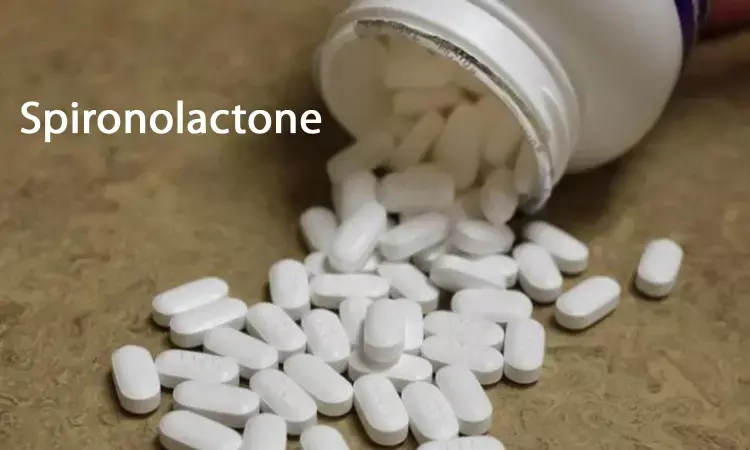- Home
- Medical news & Guidelines
- Anesthesiology
- Cardiology and CTVS
- Critical Care
- Dentistry
- Dermatology
- Diabetes and Endocrinology
- ENT
- Gastroenterology
- Medicine
- Nephrology
- Neurology
- Obstretics-Gynaecology
- Oncology
- Ophthalmology
- Orthopaedics
- Pediatrics-Neonatology
- Psychiatry
- Pulmonology
- Radiology
- Surgery
- Urology
- Laboratory Medicine
- Diet
- Nursing
- Paramedical
- Physiotherapy
- Health news
- Fact Check
- Bone Health Fact Check
- Brain Health Fact Check
- Cancer Related Fact Check
- Child Care Fact Check
- Dental and oral health fact check
- Diabetes and metabolic health fact check
- Diet and Nutrition Fact Check
- Eye and ENT Care Fact Check
- Fitness fact check
- Gut health fact check
- Heart health fact check
- Kidney health fact check
- Medical education fact check
- Men's health fact check
- Respiratory fact check
- Skin and hair care fact check
- Vaccine and Immunization fact check
- Women's health fact check
- AYUSH
- State News
- Andaman and Nicobar Islands
- Andhra Pradesh
- Arunachal Pradesh
- Assam
- Bihar
- Chandigarh
- Chattisgarh
- Dadra and Nagar Haveli
- Daman and Diu
- Delhi
- Goa
- Gujarat
- Haryana
- Himachal Pradesh
- Jammu & Kashmir
- Jharkhand
- Karnataka
- Kerala
- Ladakh
- Lakshadweep
- Madhya Pradesh
- Maharashtra
- Manipur
- Meghalaya
- Mizoram
- Nagaland
- Odisha
- Puducherry
- Punjab
- Rajasthan
- Sikkim
- Tamil Nadu
- Telangana
- Tripura
- Uttar Pradesh
- Uttrakhand
- West Bengal
- Medical Education
- Industry
Spironolactone has beneficial BP lowering effect in patients with heart failure risk

According to recent research published in the European Heart Journal - Cardiovascular Pharmacotherapy, researchers have found out that spironolactone had a clinically important BP-lowering effect and that it should be considered for lowering blood pressure in patients who are at risk of developing heart failure.
Uncontrolled blood pressure (BP) increases the risk of developing heart failure (HF). The effect of spironolactone on the BP of patients at risk of developing HF is yet to be determined.
Hence, João Pedro Ferreira and colleagues from the Université de Lorraine, Inserm, Centre d'Investigation Clinique Plurithématique, France conducted the present study with the aim to evaluate the effect of spironolactone on the BP of patients at risk for HF and whether renin can predict spironolactone's effect.
The authors conducted a HOMAGE (Heart OMics in Aging) trial, which was a prospective multicentre randomized open-label blinded endpoint (PROBE) trial. The study included a total of 527 patients, all of whom were at risk for developing HF.
The sample was randomly assigned to either spironolactone (25–50 mg/day) or usual care alone for a maximum of 9 months. Sitting BP was assessed at baseline, Months 1 and 9 (or last visit). Analysis of covariance (ANCOVA), mixed-effects models and structural modelling equations were used.
The median (percentile25–75) age was 73 (69–79) years, 26% were female, and >75% had a history of hypertension. Overall, the baseline BP was 142/78 mmHg.
The key findings noted were-
a. Patients with higher BP were older, more likely to have diabetes, and less likely to have coronary artery disease had greater left ventricular mass (LVM) and left atrial volume (LAV).
b. Compared with usual care, by the last visit, spironolactone changed SBP by −10.3 (−13.0 to −7.5) mmHg and DBP by −3.2 (−4.8 to −1.7) mmHg (P < 0.001 for both).
c. A higher proportion of patients on spironolactone had controlled BP <130/80 mmHg (36 vs. 26%; P = 0.014).
d. Lower baseline renin levels predicted a greater response to spironolactone (interaction P = 0.041).
Therefore, the authors concluded that "Spironolactone had a clinically important BP-lowering effect. Spironolactone should be considered for lowering blood pressure in patients who are at risk of developing HF."
Dr. Nandita Mohan is a practicing pediatric dentist with more than 5 years of clinical work experience. Along with this, she is equally interested in keeping herself up to date about the latest developments in the field of medicine and dentistry which is the driving force for her to be in association with Medical Dialogues. She also has her name attached with many publications; both national and international. She has pursued her BDS from Rajiv Gandhi University of Health Sciences, Bangalore and later went to enter her dream specialty (MDS) in the Department of Pedodontics and Preventive Dentistry from Pt. B.D. Sharma University of Health Sciences. Through all the years of experience, her core interest in learning something new has never stopped. She can be contacted at editorial@medicaldialogues.in. Contact no. 011-43720751
Dr Kamal Kant Kohli-MBBS, DTCD- a chest specialist with more than 30 years of practice and a flair for writing clinical articles, Dr Kamal Kant Kohli joined Medical Dialogues as a Chief Editor of Medical News. Besides writing articles, as an editor, he proofreads and verifies all the medical content published on Medical Dialogues including those coming from journals, studies,medical conferences,guidelines etc. Email: drkohli@medicaldialogues.in. Contact no. 011-43720751


